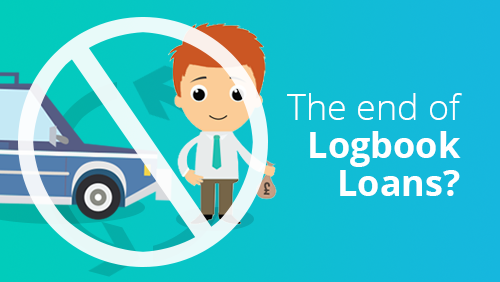Your read progress
The End of Logbook Loans?
3 minute read
Updated 15th September 2025 | Published 11th May 2017

Will 2019 see the end of logbook loans?
When it comes to consumer credit, there’s a real range of products out there.
Some we hear a lot about – credit cards, personal loans and payday loans spring to mind. But others fly a little bit more under the radar.
Logbook loans are a great example of a real sleeper. I’ll admit, I didn’t know much at all about this type of loan until recently, but basically these loans are ‘bills of sale’ where people take out loans against items they own (i.e. cars) while still maintaining possession of these items. They’ve also been growing in popularity, and have been subject to much criticism.
If you’d to read more about this type of financial product, we recently put together our guide to logbook loans.
Are logbook loans on their way out?
The answer is maybe. While banning logbook loans doesn’t seem to be on the cards, legislation planned for 2019 will significantly change the business model of logbook loan providers, which may in turn help to reduce the popularity of this financial product.
The darker side of logbook loans
As with any loan product, failure to keep up with repayments can have serious consequences. In this case, it could result in your car being repossessed.
But imagine this. You buy a second hand car, and later find out that the previous owner has taken out a logbook loan. Well, at present, a legal loophole means that the unpaid loan is automatically transferred to you. A new law has been proposed that would change this.
What’s would change?
This law would mean that as long as the buyer of a second hand doesn’t know of any outstanding debt on the car, they wouldn’t be liable for it. Gillian Guy, Chief Executive of Citizens Advice, said: “Patchy and outdated laws on logbook loans have failed borrowers and consumers. High interest rates and charges, as well as aggressive debt collection practices have caused serious financial difficulties for borrowers of logbook loans. But the problems don’t stop there. People who have bought a second hand car not knowing it had a logbook loan attached have been chased for the debts and lost their car as a result.”
What can second hand car buyers do today?
A number of web-based services exist that allow you to look-up if a car has any outstanding debt secured against it. In fact, one of these services, HPI Check, claims that one in every three cars searched on their website has a hidden history, and find that 41 searches per day are for cars that are stolen. They might cost a few quid, but when buying a second-hand car, it's imperative to check not only the presence of a logbook, but also a quick search on one of these sites.
Summary
Logbook loans are typically used by consumers with bad credit, as a way of borrowing a few hundred pounds at better rates than say payday lenders are able to provide (see our payday loans guide here). Because the loan is secured against an asset (a car) it’s less risky for lenders, as they can (legally) simply seize your car if you fail to repay your debt.
While the proposed legal change would close the loophole that passes a debt to a second hand buyer, this will likely force logbook loan lenders to increase the cost of credit, which would make borrowing money even more expensive for those that can least afford it.
Written by Smart Money People Team
As Featured By
Join our mission
We use the power of consumer reviews to help increase trust and transparency in financial services and to deliver industry leading insight and events.
Write a reviewExplore our other topics

News: Awards

News: Industry news

News: Smart Money People news

Guides: Smart money guides

Guides: Smart money tips

Guides: Business guides

Blogs: Money choices

